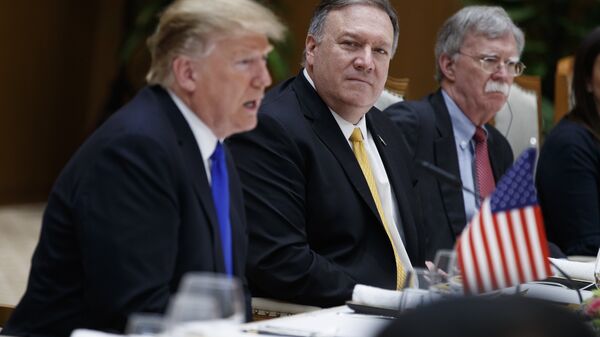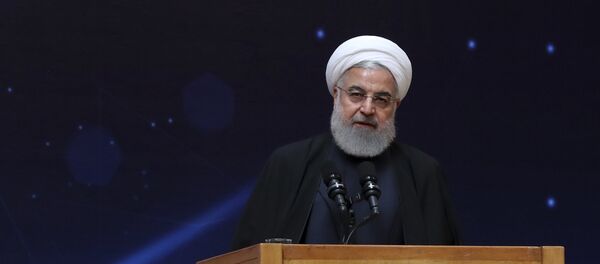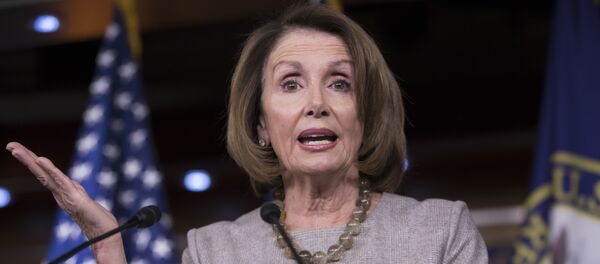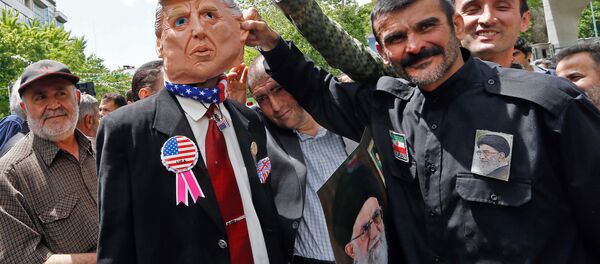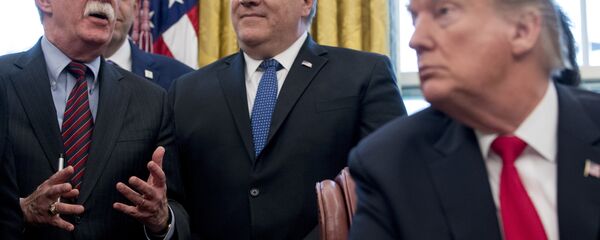On 21 May, top Trump administration officials held a closed-door briefing in the US Senate concerning Washington's Iran strategy that triggered deep concerns and divisions among American lawmakers.
Despite acting Defence Secretary Patrick Shanahan's assertions that the White House is trying to avoid a conflict with Iran, Democratic congressmen shared their suspicions that the US administration was misleading them into yet another war in the Middle East.
"Most Americans know way back when we were lied to about the situation in Vietnam and we went into a war which ended up costing us 59,000 lives, based on a lie", said US Senator and presidential candidate Bernie Sanders, also recalling the US invasion of Iraq in 2003, which was based on a false pretext of weapons of mass destruction.
"I think that the Democrats in a way are torn between their opposition to [Donald] Trump, the fact that their base does not want a war; they also have a legacy loyalty to the Obama [nuclear] agreement with Iran", he said citing the 2015 Joint Comprehensive Plan of Action (JCPOA) unilaterally torn apart by Trump in May 2018.
The former foreign policy adviser highlighted that Democratic lawmakers are still trying to bring Trump down: "Again this is where domestic policies gets all mixed up with foreign and military policy. It's that there is no clear distinction between when we are talking about Iran and what shall we do about Iran and when we are talking about how to get Donald Trump out of office".
The former US diplomat, nevertheless, noted that the majority of Democratic lawmakers are "extremely anti-Iran".
Jatras referred to the fact that on 20 May a bipartisan group of nearly 400 members of the United States Congress called upon the US president to keep troops in Syria in order to counter Iran and Russia in the region.
He remarked, however, that he does not believe that "most of [the Democrats] want to go to war" with the Islamic Republic.
'Weak Protests': Democrats Will Follow Trump's Iran Policy
Joshua Landis, an American academic and the head of the Centre for Middle East Studies at the University of Oklahoma, noted that the Democrats' efforts to resist the Trump administration's policy that could drag the US into a war with Iran are "weak".
According to him, although "the Democrats are trying to push back on some of the sabre-rattling" they "will all follow President Trump if Iran kills an American soldier or if Iran really blows up any ships in the Strait of Hormuz".
The Strait of Hormuz has turned into a focal point since Saudi Arabia on 13 May reported an alleged assault on its oil vessels off the coast of the United Arab Emirates (UAE). The White House has accused Iran of having a hand in the so-called "sabotage attacks".
Earlier in May, the US deployed B-52 Stratofortress bombers as well as a Patriot missile battery, the Abraham Lincoln Carrier Strike Group, and the Arlington amphibious transport dock to the region. On 11 May the US Air Force started conducting deterrence missions in the Middle East.
White House Appears Divided on US Iran Policy
However, it seems that there is no clarity with regard to a strategy on Iran in the White House. While National Security Adviser Bolton and Secretary of State Mike Pompeo are making hostile remarks on Tehran, President Trump is seemingly trying to encourage some kind of dialogue.
On 15 May, Trump expressed confidence that Iran "will want to talk" in the aftermath of the US administration's anti-Tehran sanctions, which fully resumed on 5 November 2018, and its "strong policy" in the Middle East.
….Different opinions are expressed and I make a decisive and final decision — it is a very simple process. All sides, views, and policies are covered. I’m sure that Iran will want to talk soon.
— Donald J. Trump (@realDonaldTrump) 15 мая 2019 г.
According to Landis, Trump's Iran policy is guided by "ignorance": "It is very good public diplomacy to try to show a smiling face of dialogue while it pressures Iran economically. But it needs to be remembered that these economic sanctions are a form of warfare. And Iran is losing", the academic said.
"There has been this contradiction since even before he took office when what he said in 2016 was better relations with Russia, no more interventions, no more regime changes and then he appoints people to his administration exclusively who oppose those views", Jatras said, posing the question whether this strategy is part of Trump's "art of the deal" or the US president is not in control of his own administration, or he simply does not know what he is doing.
The views and opinions expressed by the speakers do not necessarily reflect those of Sputnik.

